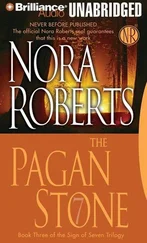Harold MacGrath - The Pagan Madonna
Здесь есть возможность читать онлайн «Harold MacGrath - The Pagan Madonna» — ознакомительный отрывок электронной книги совершенно бесплатно, а после прочтения отрывка купить полную версию. В некоторых случаях можно слушать аудио, скачать через торрент в формате fb2 и присутствует краткое содержание. Жанр: Прочие приключения, foreign_prose, foreign_language, на английском языке. Описание произведения, (предисловие) а так же отзывы посетителей доступны на портале библиотеки ЛибКат.
- Название:The Pagan Madonna
- Автор:
- Жанр:
- Год:неизвестен
- ISBN:нет данных
- Рейтинг книги:5 / 5. Голосов: 1
-
Избранное:Добавить в избранное
- Отзывы:
-
Ваша оценка:
- 100
- 1
- 2
- 3
- 4
- 5
The Pagan Madonna: краткое содержание, описание и аннотация
Предлагаем к чтению аннотацию, описание, краткое содержание или предисловие (зависит от того, что написал сам автор книги «The Pagan Madonna»). Если вы не нашли необходимую информацию о книге — напишите в комментариях, мы постараемся отыскать её.
The Pagan Madonna — читать онлайн ознакомительный отрывок
Ниже представлен текст книги, разбитый по страницам. Система сохранения места последней прочитанной страницы, позволяет с удобством читать онлайн бесплатно книгу «The Pagan Madonna», без необходимости каждый раз заново искать на чём Вы остановились. Поставьте закладку, и сможете в любой момент перейти на страницу, на которой закончили чтение.
Интервал:
Закладка:
Harold MacGrath
The Pagan Madonna
CHAPTER I
Humdrum isn’t where you live; it’s what you are. Perhaps you are one of those whose lives are bound by neighbourly interests. Imaginatively, you never seek what lies under a gorgeous sunset; you are never stirred by any longing to investigate the ends of rainbows. You are more concerned by what your neighbour does every day than by what he might do if he were suddenly spun, whirled, jolted out of his poky orbit. The blank door of an empty house never intrigues you; you enter blind alleys without thrilling in the least; you hear a cry in the night and impute it to some marauding tom. Lord, what a life!
And yet every move you make is governed by Chance – the Blind Madonna of the Pagan, as that great adventurer, Stevenson, called it. You never stop to consider that it is only by chance that you leave home and arrive at the office alive – millions and millions of you – poor old stick-in-the-muds! Because this or that hasn’t happened to you, you can’t be made to believe that it might have happened to someone else. What’s a wood fire to you but a shin warmer? And how you hate to walk alone! So sheer off – this is not for you.
But to you, fenced in by circumstance, walls of breathless brick and stone, suffocating with longing, you whose thought springs ever toward the gorgeous sunset and the ends of rainbows; who fly in dreams across the golden south seas to the far countries, you whose imagination transforms every ratty old square-rigger that pokes down the bay into a Spanish galleon – come with me.
For to admire an’ for to see,
For to be’old this world so wide.
First off, Ling Foo, of Woosung Road, perhaps the most bewildered Chinaman in all Shanghai last April. The Blind Madonna flung him into a great game and immediately cast him out of it, giving him never an inkling of what the game was about and leaving him buffeted by the four winds of wonder.
A drama – he was sure of that – had rolled up, touched him icily if slightly, and receded, like a wave on the beach, without his knowing in the least what had energized it in his direction. During lulls, for years to come, Ling Foo’s consciousness would strive to press behind the wall for a key to the riddle; for years to come he would be searching the International Bund, Nanking Road, Broadway and Bubbling Well roads for the young woman with the wonderful ruddy hair and the man who walked with the sluing lurch.
Ah, but that man – the face of him, beautiful as that of a foreign boy’s, now young, now old, as though a cobweb shifted to and fro across it! The fire in those dark eyes and the silk on that tongue! Always that face would haunt him, because it should not have been a man’s but a woman’s. Ling Foo could not go to his gods for comparisons, for a million variations of Buddha offered no such countenance; so his recollection would always be tinged with a restless sense of dissatisfaction.
There were other faces in the picture, but with the exception of the woman’s and the man’s he could not reassemble the features of any.
A wild and bitter night. The nor’easter, packed with a cold, penetrating rain, beat down from the Yellow Sea, its insensate fury clearing the highways of all save belated labourers and ’ricksha boys. Along the Chinese Bund the sampans huddled even more closely together, and rocked and creaked and complained. The inscrutable countenance of the average Chinaman is the result of five thousand years of misery. It was a night for hand warmers – little jigsawed brass receptacles filled with smoldering punk or charcoal, which you carried in your sleeves and hugged if you happened to be a Chinaman, as Ling Foo was.
He was a merchant. He sold furs, curios, table linen, embroideries. His shop was out on the Woosung Road. He did not sit on his stool or in his alcove and wait for customers. He made packs of his merchandise and canvassed the hotels in the morning, from floor to floor, from room to room. His curios, however, he left in the shop. That was his lure to bring his hotel customers round in the afternoon, when there were generally additional profits and no commissions. This, of course, had been the modus operandi in the happy days before 1914, when white men began the slaughter of white men. Nowadays Ling Foo was off to the Astor House the moment he had news of a ship dropping anchor off the bar twelve miles down the Whangpoo River. The hour no longer mattered; the point was to beat his competitors to the market – and often there was no market.
He did not call the white people foreign devils; he called them customers. That they worshipped a bearded Buddha was no concern of his. Born in the modern town, having spent twelve years in San Francisco, he was not heavily barnacled with tradition. He was shrewd, a suave bargainer, and as honest as the day is long. His English was fluent.
To-night he was angry with the fates. The ship was hours late. Moreover, it was a British transport, dropping down from Vladivostok. He would be wasting his time to wait for such passengers as came ashore. They would be tired and hungry and uncomfortable. So at seven o’clock he lit a piece of punk, dropped it into his hand warmer, threw his pack over his shoulders, and left the cheery lobby of the hotel where he had been waiting since five in the afternoon. He would be cold and wet and hungry when he reached his shop.
Outside he called to a disconsolate ’ricksha boy, and a moment later rattled across the bridge that spans the Soochow Creek. Even the Sikh policeman had taken to cover. When he finally arrived home he was drenched from his cap button to the wooden soles of his shoes. He unlocked the shop door, entered, flung the pack on the floor, and turned on the electric light. Twenty minutes later he was in dry clothes; hot rice, bean curd, and tea were warming him; and he sat cross-legged in a little alcove behind his till, smoking his metal pipe. Two or three puffs, then he would empty the ash in a brass bowl. He repeated this action half a dozen times. He was emptying the ash for the last time when the door opened violently and a man lurched in, hatless and apparently drunk – a white man.
But instantly Ling Foo saw that the man was not drunk. Blood was streaming down his face, which was gray with terror and agony. The man made a desperate effort to save himself from falling, and dragged a pile of embroidered jackets to the floor as he went down.
Ling Foo did not stir. It was not possible for him to move. The suddenness of the spectacle had disconnected thought from action. He saw all this, memorized it, even speculated upon it; but he could not move.
The door was still open. The rain slanted across the black oblong space. He saw it strike the windows, pause, then trickle down. He could not see what had become of the man; the counter intervened. A tingle ran through Ling Foo’s body, and he knew that his brain had gained control of his body again. But before this brain could telegraph to his legs three men rushed into the shop. A bubble of sound came into Ling Foo’s throat – one of those calls for help that fear smothers.
The three men disappeared instantly below the counter rim. Silence, except for the voices of the rain and the wind. Ling Foo, tensely, even painfully alive now, waited. He was afraid, and it was perfectly logical fear. Perhaps they had not noticed him in the alcove. So he waited for this fantastic drama to end.
The three men rose in unison. Ling Foo saw that they were carrying the fourth between them. The man who carried the head and shoulders of the victim – for Ling Foo was now certain that murder was abroad – limped oddly, with a heave and a sluing twist. Ling Foo slid off his cushion and stepped round the counter in time to see the night absorb the back of the man who limped. He tried to recall the face of the man, but could not. His initial terror had drawn for him three white patches where faces should have been.
Читать дальшеИнтервал:
Закладка:
Похожие книги на «The Pagan Madonna»
Представляем Вашему вниманию похожие книги на «The Pagan Madonna» списком для выбора. Мы отобрали схожую по названию и смыслу литературу в надежде предоставить читателям больше вариантов отыскать новые, интересные, ещё непрочитанные произведения.
Обсуждение, отзывы о книге «The Pagan Madonna» и просто собственные мнения читателей. Оставьте ваши комментарии, напишите, что Вы думаете о произведении, его смысле или главных героях. Укажите что конкретно понравилось, а что нет, и почему Вы так считаете.












